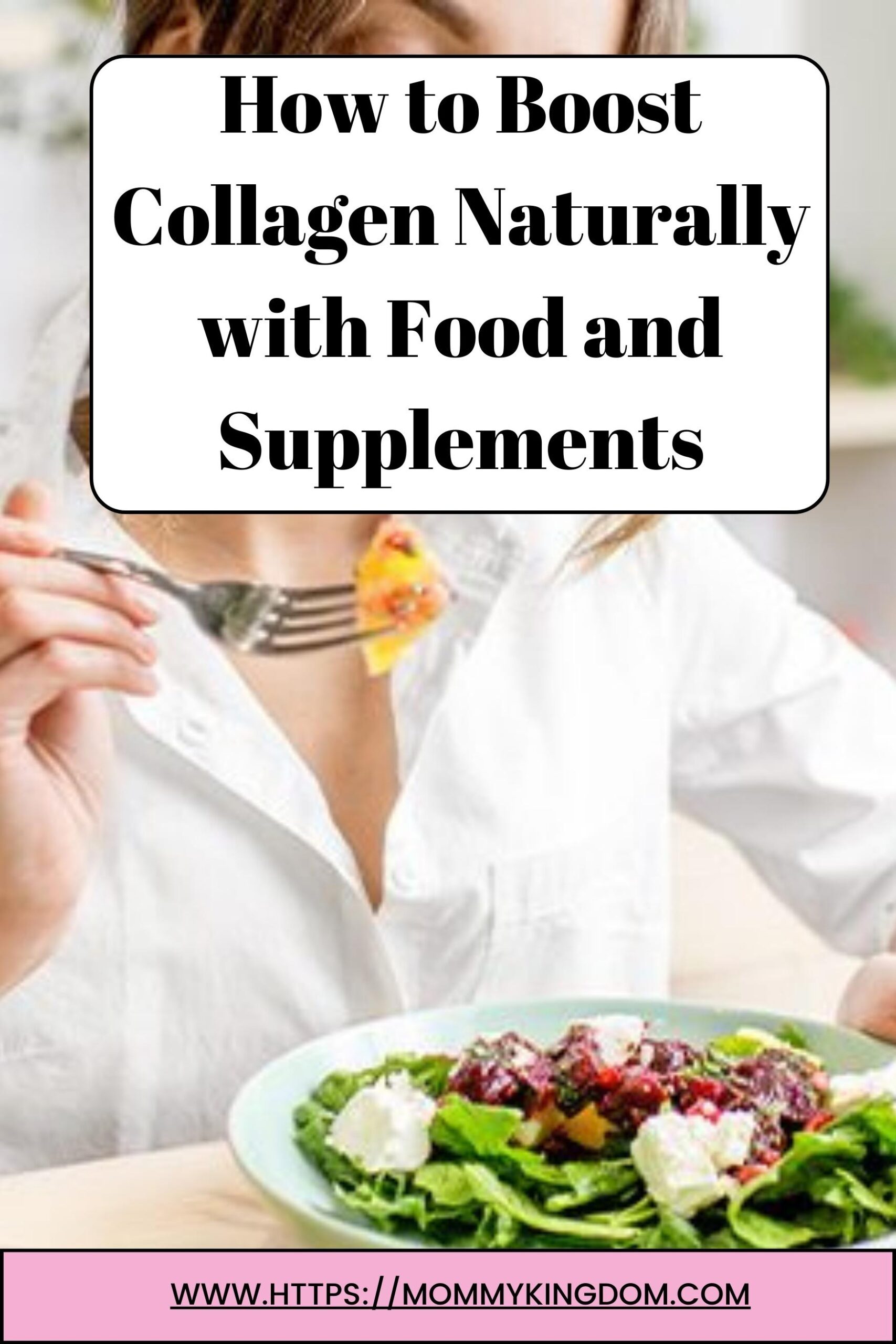Learn how to boost collagen naturally with food and supplements. Discover effective tips to enhance your skin’s elasticity and overall health.
Collagen, often referred to as the body’s structural protein, plays a crucial role in maintaining the health and appearance of our skin, hair, nails, and joints. As we age, collagen production naturally decreases, leading to wrinkles, sagging skin, and joint discomfort. But fear not! In this comprehensive guide, we’ll explore how to boost collagen naturally through dietary choices and supplements. You’ll uncover expert tips and insights to revitalize your skin and well-being.
The Key to Collagen Protein-Rich Foods

This section dives into the first key aspect of boosting collagen naturally, which is incorporating protein-rich foods into one’s diet. We emphasize the importance of protein for collagen synthesis and provide examples of protein sources such as lean meats, fish, eggs, and plant-based options. By mentioning these specific sources, we give practical guidance to readers on how to make dietary changes.
Vitamin C The Collagen Supercharger

In this section, we explain the critical role of Vitamin C in collagen production. We mention that Vitamin C supports the enzymatic reactions necessary for collagen synthesis. To make it actionable, we list citrus fruits, bell peppers, and other Vitamin C-rich foods. Additionally, we suggest considering Vitamin C supplements if these foods aren’t readily available.
Hydration for Hyaluronic Acid

This section emphasizes the importance of hydration for maintaining hyaluronic acid levels in the skin. We make it clear that hyaluronic acid is essential for skin hydration and mention the recommended daily water intake. This practical tip helps readers understand how hydration is linked to collagen health.
Antioxidants The Collagen Protectors

Here, we introduce antioxidants as protectors of collagen. We explain that antioxidants combat free radicals that can damage collagen. By listing specific antioxidant-rich foods like berries, nuts, and dark leafy greens, we provide readers with tangible choices to incorporate into their diets.
Collagen Supplements A Boost from Within

This section discusses the role of collagen supplements as an additional boost to one’s collagen-boosting efforts. We suggest looking for high-quality collagen peptides or hydrolyzed collagen supplements and recommend consulting a healthcare professional for personalized guidance. This advice ensures readers make informed decisions about supplements.
Zinc A Collagen Catalyst

In this part, we introduce zinc as a catalyst for collagen production and tissue repair. We mention zinc-rich foods such as shellfish, lean meats, and dairy products. By providing these examples, we help readers identify dietary sources of zinc.
Final Words
Boosting collagen naturally through food and supplements is an effective way to enhance your skin’s radiance and overall well-being. By incorporating protein-rich foods, vitamin C, hydration, antioxidants, and supplements into your routine, you can support collagen production and maintain a youthful appearance. Remember, consistency is key on your collagen-boosting journey. Embrace these tips, and enjoy the benefits of healthier, more vibrant skin.
FAQs
Can collagen supplements replace a balanced diet?
Collagen supplements can be beneficial, but they should complement a balanced diet rich in collagen-boosting foods.
How long does it take to see results from collagen-boosting efforts?
Results vary from person to person, but you may start noticing improvements in your skin’s texture and elasticity within a few weeks to a few months.
Are there any side effects of collagen supplements?
Collagen supplements are generally safe, but some people may experience digestive discomfort. It’s essential to follow the recommended dosage.
Can collagen-boosting foods help with joint pain?
Yes, collagen-rich foods can support joint health by maintaining cartilage and reducing inflammation.
Is it possible to overconsume collagen-boosting foods or supplements?
While it’s rare, excessive collagen intake may lead to digestive issues. Stick to recommended servings.
Are there age restrictions for using collagen supplements?
Collagen supplements can benefit individuals of all ages, but consult a healthcare professional, especially if you have underlying health conditions.
